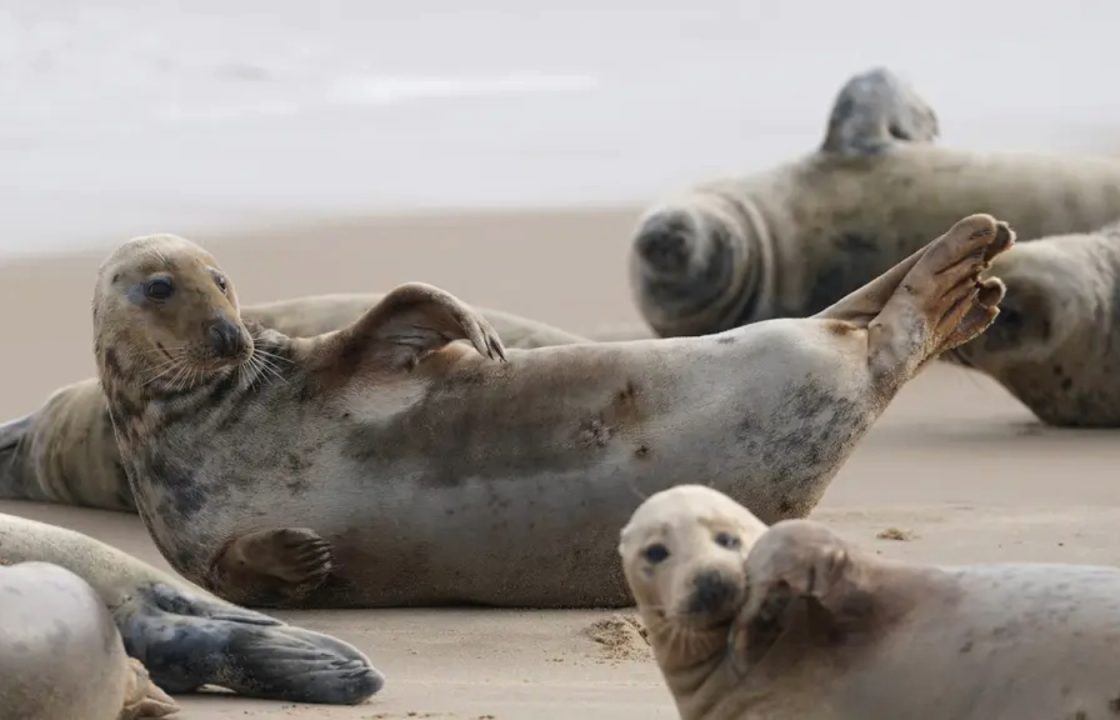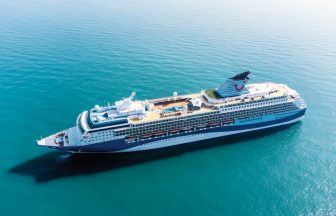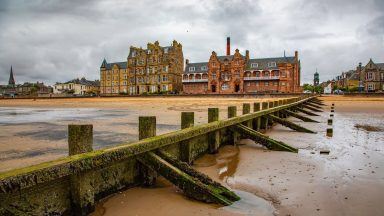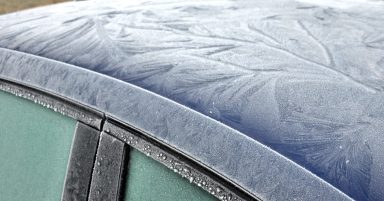Scientists have appealed to paddleboarders and kayakers to enjoy Scotland’s waters “responsibly”, after a third of marine mammal disturbances observed in a study were found to be caused by unmotorised craft.
Researchers led by Heriot-Watt University carried out 400 hours of observations across five Scottish marine regions, looking at what happened when vessels were present at the same time as marine mammals such as whales, dolphins and seals.
The study, which covered the Clyde, Forth and Tay, Moray Firth, Orkney Islands and Shetland Islands areas, documented hundreds of interactions between vessels and marine mammals, many of which occurred in sensitive or protected areas.
Dr Emily Hague, from Heriot-Watt University, explained that a third of all observed disturbances were caused by “non-motorised craft like kayaks, paddleboards and rowboats”.
She explained: “In one case, seals resting on a beach became visibly agitated as kayaks passed by, beginning to move around and then many left the haul-out site and slid into the water, a clear disruption of their resting behaviour.
“Signs of stress aren’t always dramatic or obvious; it can be more subtle, such as a change in breathing rate, swimming direction or their diving behaviour.”
Another third of the disturbances were caused by small motorboats, with the researchers saying that in one case they saw a speedboat “repeatedly pursue” bottlenose dolphins, which changed direction and lengthened their dives, regrouping only after the boat left.
The scientists added that many small motorboats do not carry automatic identification system tracking, meaning their presence and behaviour are “effectively invisible” to regulators and conservation authorities.
Disturbances caused by kayaks and paddleboards were recorded in the Clyde, Forth and Tay and Moray Firth areas, while powered vessel disturbances, including those from speedboats and RIBs (rigid inflatable boats), occurred in all five areas.
Dr Hague explained that the land-based sightings were “opportunistic”, reflecting “what happened to be observed, not necessarily how often disturbances occur”.
She added: “Just because no incidents involving kayaks were recorded in Orkney or Shetland doesn’t mean they don’t happen.”
The scientist appealed to all water users to follow the Scottish Marine Wildlife Watching Code in order to minimise their impact on marine mammals.
“The truth is that all of Scotland’s coastline is important habitat for marine mammals,” she said.
“Whether you’re paddling off the coast of Fife or sailing around Skye, you’re likely sharing the water with sensitive species.
“We want people to enjoy Scotland’s waters, but to do so responsibly by keeping up to date on how best to respond should you spot marine wildlife.
“Kayakers, paddleboarders, surfers, recreational boaters and everyone else in the water should follow the Scottish Marine Wildlife Watching Code, which offers clear advice on how to minimise your impact on marine mammals.
“With a little more awareness and a few small changes, we can all help ensure that sharing the sea doesn’t come at a cost to the animals that call it home.”
The research, which was conducted with the support of the Whale and Dolphin Conservation, forms part of the Scottish Vessel Project, led by Heriot-Watt University.
The project aims to capture marine vessel data around Scotland’s coastline to better understand the amount of exposure to boats that whales, dolphins and seals experience at different locations.
Follow STV News on WhatsApp
Scan the QR code on your mobile device for all the latest news from around the country


 PA Media
PA Media
























